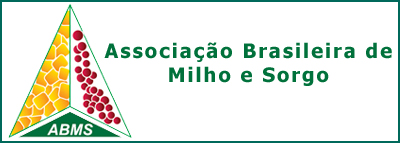EFFICIENCY OF CHEMICAL PESTICIDES TO CONTROL Spodoptera frugiperda AND VALIDATION OF PHEROMONE TRAP AS A PEST MANAGEMENT TOOL IN MAIZE CROP
DOI:
https://doi.org/10.18512/1980-6477/rbms.v9n2p107-122Palavras-chave:
Fall armyworm, integrated pest management, economic injury level, chemical controlResumo
- The fall armyworm, Spodoptera frugiperda (J. E. Smith) (Lepidoptera: Noctuidae) is a key pest of maize (Zea mays L.) crop, and invariably demand control measures. However, the time of insecticide application has not been properly defined, leading to an inefficiency in the control and, therefore, without getting the maximum from the treatment procedure. Many times the pest has been reaching population density that would demand control measure very early in the season. To detect such populations and, therefore, to decide about the time of the insecticide application, the experiment was conducted installing soon after the plant emergency, a delta type Pherocon 1C trap with a commercial synthetic sexual pheromone (Bio spodoptera® Chem Tica International, S.A.). Insecticide first application was made ten days after the capture of three adults per trap/ha. A second application was accomplished when was again captured a minimum of three moths, but initiating the counting four-days after the previous insecticide application. This same procedure was adopted for a third application. The evaluated insecticides provided a significant reduction in the infestation level, for variable periods, depending on the chemical suggesting that the pheromone trap can be a useful tool in integrated pest management program in maize crop in Brazil.
Downloads
Publicado
Como Citar
Edição
Seção
Licença
Autores que publicam nesta revista concordam com os seguintes termos:- Autores mantém os direitos autorais e concedem à revista o direito de primeira publicação, com o trabalho simultaneamente licenciado sob a Creative Commons Attribution License que permitindo o compartilhamento do trabalho com reconhecimento da autoria do trabalho e publicação inicial nesta revista.
- Autores têm autorização para assumir contratos adicionais separadamente, para distribuição não-exclusiva da versão do trabalho publicada nesta revista (ex.: publicar em repositório institucional ou como capítulo de livro), com reconhecimento de autoria e publicação inicial nesta revista.
- Autores têm permissão e são estimulados a publicar e distribuir seu trabalho online (ex.: em repositórios institucionais ou na sua página pessoal) a qualquer ponto antes ou durante o processo editorial, já que isso pode gerar alterações produtivas, bem como aumentar o impacto e a citação do trabalho publicado



